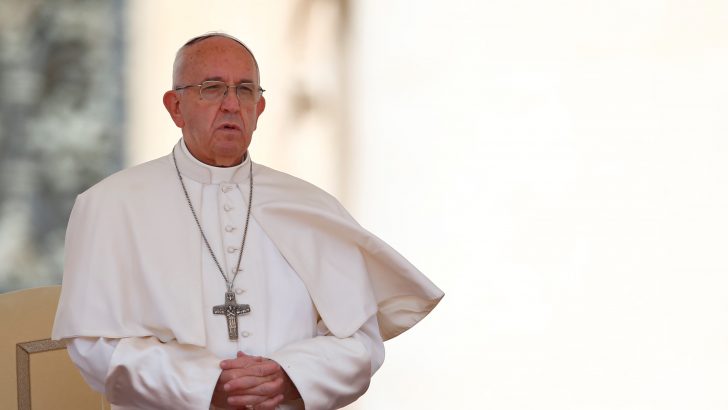“We want to build a sense of identity and mission that allows us to serve others, to bring God’s mercy”, writes Breda O’Brien
At the weekend conference focusing on Pope Francis and the family, there was very little emphasis on ‘hot-button’ issues like same-sex marriage. Instead, there was a focus on building a strong sense of what it means to be a family trying to come closer to God, and how that might be lived out in our communities.
Joe Paprocki, who is an American catechist, has a little book called Practice Makes Catholic, which has the subtitle ‘Moving from a Learned Faith to a Lived Faith’. The conference was very much in line with the sentiment of that title.
Of course, nowadays, many people never learned the Faith in the first place. People over the age of 40 (or is closer to over 50, now?) learned their faith primarily at home, and did so in the shape of practices, such as regular Mass attendance, praying the Rosary and the Angelus, morning and night prayer.
What they learnt at home was reinforced by school, and by their own continuing practice.
However, that ‘osmosis’ method no longer works. The Canadian philosopher Charles Taylor coined an expression: “The social imaginary.” It basically means all the elements of a society that go to build our shared identity.
Identity
In Ireland, the Catholic Church was once a significant badge of identity, one that was particularly important in a country that was colonised for centuries by a very powerful neighbour.
Now, our identities are being shaped by all sorts of different elements, with Catholicism being just one strand of our social imaginary, or perhaps, entirely missing from it.
The consumerist model holds sway. Most of us think of consumerism on one side of the divide, and Christianity on the other, but it is worse than that.
From a very early age, people are being trained to think of themselves primarily as consumers, defined by their choices. It is no surprise that the right to choose is such a pervasive slogan.
People also ‘consume’, that is, pick and choose in religion. They expect it to be there for rites of passage like birth or death, but do not see it as a horizon for their lives.
Their identity is not formed by it in any comprehensive way. In fact, for many young people, their worldview is formed by the internet, and not by their families.
Consumerist
They spend so much time online that they are absorbing the norms of that world, which are overwhelmingly both consumerist and liberal. (I mean liberal as in the sense of maximising personal choice and autonomy.)
However, the belief in choice is not at all the same as having choice. Often, it is the illusion of choice. As David Quinn said at the conference, people do not so much make choices as follow norms.
One of the problems that we have is that we still expect the ‘osmosis’ model to work within intentional disciplines which form identity.
Paprocki’s book, Practice Makes Catholic, identifies five characteristics of being Catholic. They are: a sense of sacramentality, a commitment to community, a respect for the dignity of human life and a commitment to justice, a reverence for Scripture and Tradition and a disposition to faith and hope, not despair.
Others would no doubt include other things. Each section is broken down, so that, for example, he starts with explaining sacramentals, such as the use of ashes or rosary beads.
Again at the conference, Archbishop Eamon Martin spoke of families who pray the Rosary, who attend Mass, who have a deep respect for life from conception to natural death, who say grace before meals, who attend Confession and who do these things because they are Catholic.
Not only do we do these things because we are Catholic, but doing them intentionally also makes us Catholic, as the title of Paprocki’s book implies.
Bairbre Cahill described facilitating meetings with adults whose children are preparing for sacraments, and how after initial hesitation, people have very profound conversations.
In their everyday lives, they have neither the opportunity, or in many cases, the language, to express how they feel about their faith.
Nuala O’Loan’s point about how messy and raw family life can be, ties into this sense of identity. This is not about perfect people leading perfect lives.
But right across the talks, a clear message emerged – we need to build, starting in very small and modest ways, families and parishes that provide an alternative to the dominant culture.
It is not that we want to cower behind the walls of such communities, huddling in our alternative universe. No, we want to build a sense of identity and mission that allows us to serve others, to bring God’s mercy to them, and to help to build a better society for everyone.


 Breda O'Brien
Breda O'Brien